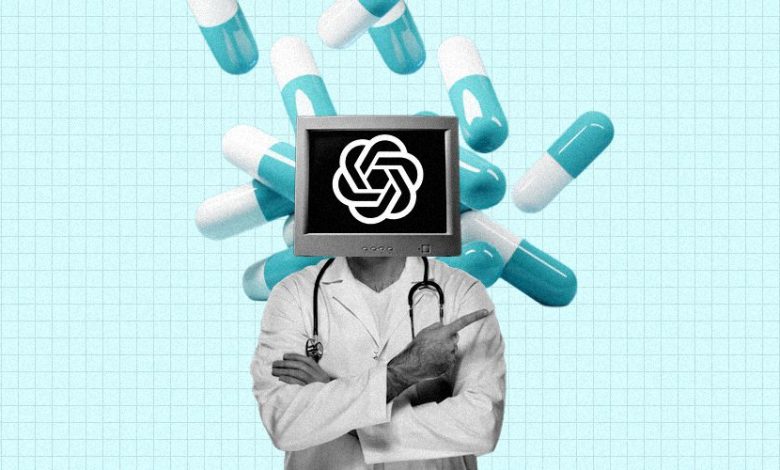
Faster search and lower costs: companies have been investing in this technology for some time
BASEL – Artificial intelligence (AI) could revolutionize drug development, speeding up research and  reducing costs. For this reason, pharmaceutical companies are investing heavily in the sector.
reducing costs. For this reason, pharmaceutical companies are investing heavily in the sector.
Not a fad – Large-scale language models such as ChatGPT or image generators such as Stable Diffusion have by now also launched the topic of AI among the general public, but biotech companies and the pharmaceutical industry have already been around for a long time. According to one estimate, medical knowledge doubles every 73 days: this is not least due to the eight to ten thousand scientific papers that are published every day worldwide, reports the Association of Research Pharmaceutical Companies (Verband Forschender Arzneimittelhersteller, Vfa, based in Berlin).
Human capabilities are not sufficient to use this mass of information, Anna Bauer-Mehren, head of PRED, Roche's innovation center, told the AWP agency. The Basel giant has therefore relied on computer-aided research for some time. “The mathematics behind AI is not new, it dates back to the 1950s,” notes the specialist. Machine learning (ML) was added in the 1980s and, over time, became possible on a large scale thanks to increased computing power.
Development – According to Bauer-Mehren, AI can be used at all stages of development. In its division, it is resorted to along the entire research chain. “It starts with the question of how to find the right target,” explains Bauer-Mehren. In pharmaceutical research, a target represents the point in the pathological process where an active substance could intervene: as a rule, it is a molecule that plays an important role in the pathological process.
Artificial intelligence is also used for the development of these molecules, continues the expert. "For this there are models that predict whether the preparation will have certain properties and how and where it should bind better". In this case, the AI also helps to understand whether the molecule could bind to tissues causing side effects. "In summary, we can say that with the help of AI we can generate predictions that help us find the best molecules faster, with the exact desired properties."
The speed – And it is precisely this that makes these new technologies so fascinating in the eyes of companies: speed. Suffice it to say that it usually takes up to thirteen years for a medicine to actually arrive on the market, from the initial idea through all the stages of research. The failure rate is higher than the 90% and the costs are between 2.5 billion and 3 billion dollars (2.2-2.6 billion francs at current exchange rates) for each active ingredient.
With the use of artificial intelligence, companies are now hoping to shorten this time horizon and reduce costs. The American financial company Morgan Stanley (MS) has recently calculated in a study that the use of AI will reduce the research and development costs of the 20-40%. The prospect of a drug's potential success also plays an important role, which can be determined even more precisely.
Both aspects are relevant to health care systems as a whole, Bauer-Mehren argues. "The faster we can develop a higher quality, lower cost drug, the greater the ultimate benefit for the patient and the system as a whole."
The odds of success – AI can also help to better determine the prospects for a successful therapy. For example, when it comes to the clinical review of a drug candidate, the AI can already make a sort of preselection on which patients are more or less suitable to participate in the programme.
The question of data – For this it is important that sufficient data is available. And this is exactly where the pharmaceutical industry is running into limitations. The Roche researcher gives the example of cancer treatment: «Only 5% of the potential data in this therapeutic field is generated by research companies and academic institutions, the remaining 95% is circulating in the healthcare system, in hospitals and between the respective attending physicians". But to really understand cancer, or any disease for that matter, it would be important to bring this data together.
 Of the same opinion is also Michael Altorfer, number one of the Swiss Biotech Association (Swiss Biotech Association). It would be important not only to collect more data, but also to make it available to the many players in the health system. "Only if we collect enough information and ensure its quality, the AI will be able to use it to draw reliable conclusions".
Of the same opinion is also Michael Altorfer, number one of the Swiss Biotech Association (Swiss Biotech Association). It would be important not only to collect more data, but also to make it available to the many players in the health system. "Only if we collect enough information and ensure its quality, the AI will be able to use it to draw reliable conclusions".
Since there are no large generalized patient databases, companies have to rely on cooperation and information purchasing. According to estimates by Morgan Stanley experts, more than half of healthcare enterprises rely on external vendors when it comes to AI or machine learning. Last year around 5.7% of the research budget was spent on AI/ML: according to MS the share will rise to 8.2% this year and around 10.5% of the total operational budget this year next.
A failing example – AI is not a guarantee of success, however. For example, according to the German newspaper Handelsblatt, Novartis has scaled back its ambitious "Data 42" project, launched in 2019. The goal was to use AI in the research of new drugs, but it was a failure, according to the newspaper financial. Last week, in response to a question about "Data42", the financial head of the Rhine giant Harry Kirsch admitted that the original plan proved too complex for the group.
Related news: ChatGPT's AI is getting less intelligent
Do we (already) need ChatGPT to work?





